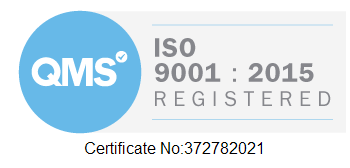This blog intends to highlight some key issues that the gaming sector faces with language variety and translations!
Gaming is now an industry worth over 173 billion US Dollars. Meaning it is bigger than it has ever been. Gamers have the ability to jump on the internet, slap on a headset, and integrate with global communities of like-minded people at the snap of a finger.
This has driven the need for better quality language translation and cultural understanding due to the growth of accessibility in international games. Gaming companies who don’t adapt their products often get left behind in one-dimensional national markets, snubbing their opportunity for global success.
Global Translation’s UK has clients in the gaming sector, we’ll point out some noteworthy issues the sector faces with gaming translations.
Let’s get stuck in;
1. Cultural Differences
Cultural differences are one of the main reasons why games are being modified. The modification allows them to become more relevant to various audiences in different parts of the world.
Issues arise where maybe certain characters or themes within a game don’t easily cross cultures. For example, Superman, an American cultural all-star, may lack in popularity in Japan due to a gap in cultural references. The same may be said in reverse to America’s reaction to the Japanese anime character Goku.
Gamers around the world respond differently to aspects such as outfits, accessories, and reliability, which ultimately can have a knock-on effect on how successful a game is in different parts of the world.
2. More to consider than just the translation of words
Translating a video game is much more than simply switching copy and in-game content from one language to another.
Engineers need to build translation into each game, then the design team needs to transform the visual content to suit. This can present unique challenges at any and every stage.
Often, gaming companies aren’t prepared for the steps needed for a high-quality translation. A gaming translation should be seen as a collaborative project, rather than an assignment that is simply passed on to a translation service.
3. No two languages are the same
Whilst the process of language translation in gaming is pretty much the same, translating certain languages from one to another brings unseen challenges, it can change the context of how something is perceived or even render what’s said completely irrelevant for different audiences.
An example of this can be seen in the second Japanese Manga series of ‘Demon Slayer.’ Later developed into a video game. It saw fans appalled by its ‘egregious’ translation of the title. Stating that the English translation was far too soft. They had translated the part of the title ‘yuukaku’ from essentially ‘red-light district’ to the ‘entertainment district.’
This minor adjustment in translation highlights the want for euphemisms in English culture. However, it degrades the cutting edge, to the point, of the original meaning of the Japanese title.
This further highlights the need for expert linguistic knowledge and translators to spot these issues before they become major problems later down the line.
4. Extremely technical
Translating any type of language has its technicalities, but this is especially true when it comes to gaming. Initially, the development team must code the games to allow languages to be added and edited easily, which requires setting up individual language files and then prompting them through variable functions.
Game designers and developers must also consider how translated text is displayed in the game, as it will often change the length of some sentences depending on the language. The result is that the text may no longer fit on the screen or inside containers/elements the way it’s intended to.
These lengthier blocks of text will take longer to read, causing the need for adjustment in timings, voice-overs, and subtitles. This is a crucial consideration as it ensures the dialogue does not fall out of tune with the live gameplay.
5. AI Translations
Typically, gaming companies will attempt an AI translation, to begin with, and then approach a translation service to fix all the errors. Having a professional translation service deal with the project from the beginning will reduce cost and save time both in the short and long term. It enables game developers to make more rational decisions and gives fluidity to the creative brainstorming process when it comes to cross-cultural content. Working with a translation company will also give you a much better understanding of foreign culture and the global market every step of the way to ensure translations are localised.
Conclusion
That concludes the 5 issues that we recommend considering when tackling translations within the gaming sector. We hope they have shed some light on areas of concern and have given you some more clarity on taking your next steps towards high-quality gaming translations.
Have you ever wondered why certain games are bestsellers in certain countries yet struggle to get off the ground in others?
The answer could be the poor understanding and interpretation of both language and cultural differences. When it comes to gaming, Global Translations UK is perfectly positioned to help you gain a better grasp of what works and what doesn’t, depending on where in the world your audience is.
Check out Global Translations UK’s Gaming Translation Services for more information on our outstanding gaming translations.









